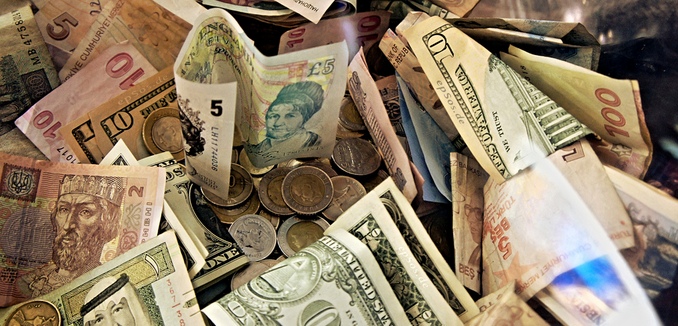At the end of March, Palestinian Authority President Mahmoud Abbas hastened the end of the American-sponsored peace talks with Israel by pursuing membership in fifteen of international treaties (of which the PA was already in violation of at least 11). This week, the PA was accepted into the United Nation’s anti-corruption treaty.
Prime Minister Rami Hamdallah was notified officially Sunday that the UN accepted Palestine as a signatory to the UN Convention Against Corruption of 2003.
According to an official letter from UN Secretary-General Ban Ki-moon, Palestine has become an official signatory of the convention as of May 2, 2014. The letter was sent to chief of the Palestinian Authority’s anti-corruption commission Rafiq Natsha, who delivered it to Hamdallah Sunday.
Ironically, the PA and its main constituent organization, Fatah, have a long history of corruption. The corruption of the PA was cited as a major reason that Fatah lost the 2006 Palestinian legislative elections to Hamas. Last year Abbas forced out Prime Minister Salaam Fayyad, the one PA official who was committed to introducing transparency and honesty into Palestinian politics.
A former prosecutor for the International Criminal Court, Luis Moreno-Ocampo, last week warned the PA that joining international treaties could put the authority in legal jeopardy. Given the PA’s history, the anti-corruption conventions could be especially damaging, especially as the European Court of Auditors is beginning to focus on Palestinian corruption.
Corruption in the PA, and its predecessor organization, the Palestine Liberation Organization, has been endemic for decades. A report in 1983 noted that three high-ranking PLO officials gambled away $250,000 of the organization’s funds, and that the PLO used predatory pricing to gain economic control over southern Lebanon in the 1970’s. After the Oslo Accords, the corruption moved to Gaza and Ramallah. Those who had power within the PA attained monopolies that were used to build fortunes; foreign aid often went to build luxury homes for the well-connected.
Abbas has used the PA as his personal fiefdom since taking it over following Yasir Arafat’s death. Jonathan Schanzer, the director of research for the Foundation for Defense of Democracies, has reported extensively on Abbas’s personal corruption. One of Schanzer’s articles, The Brothers Abbas, documented how Abbas’s sons Tarek and Yasser used their privileged positions to build financial empires. Yasser Abbas unsuccessfully tried to sue Schanzer in response to the article.
In the December 2013 issue of The Tower Magazine, Schanzer argued in We Really Need to Talk About Corruption that ending Palestinian corruption is a prerequisite for peace.
[Photo: epSos.de / Flickr ]




